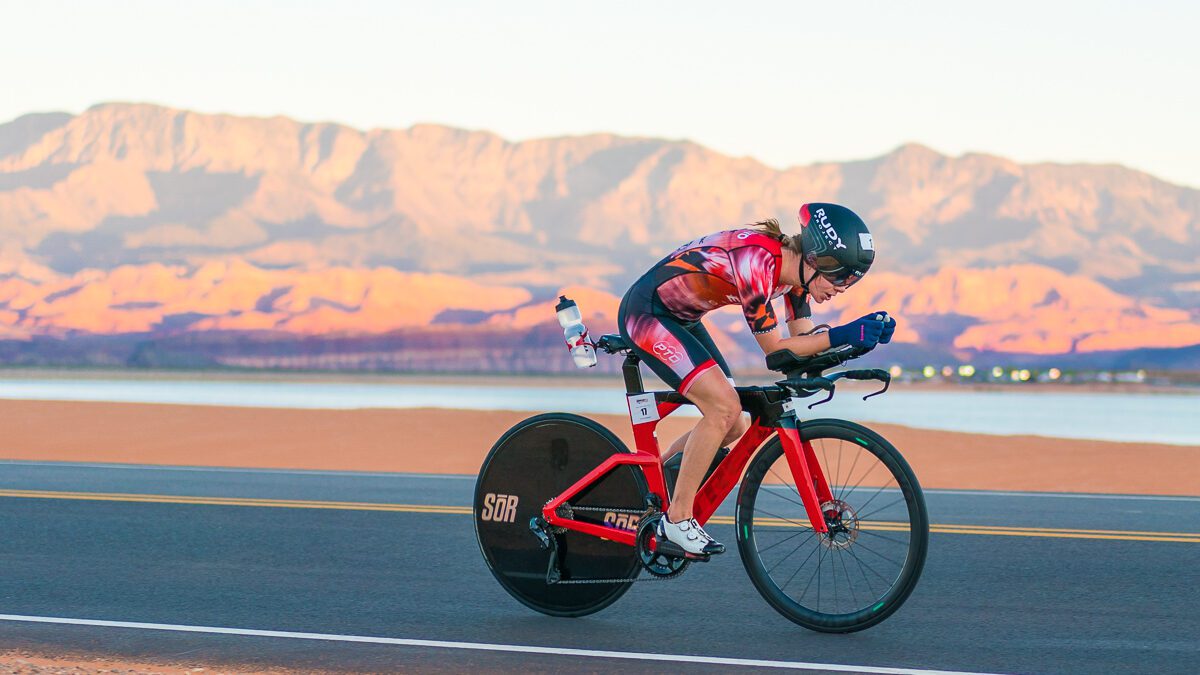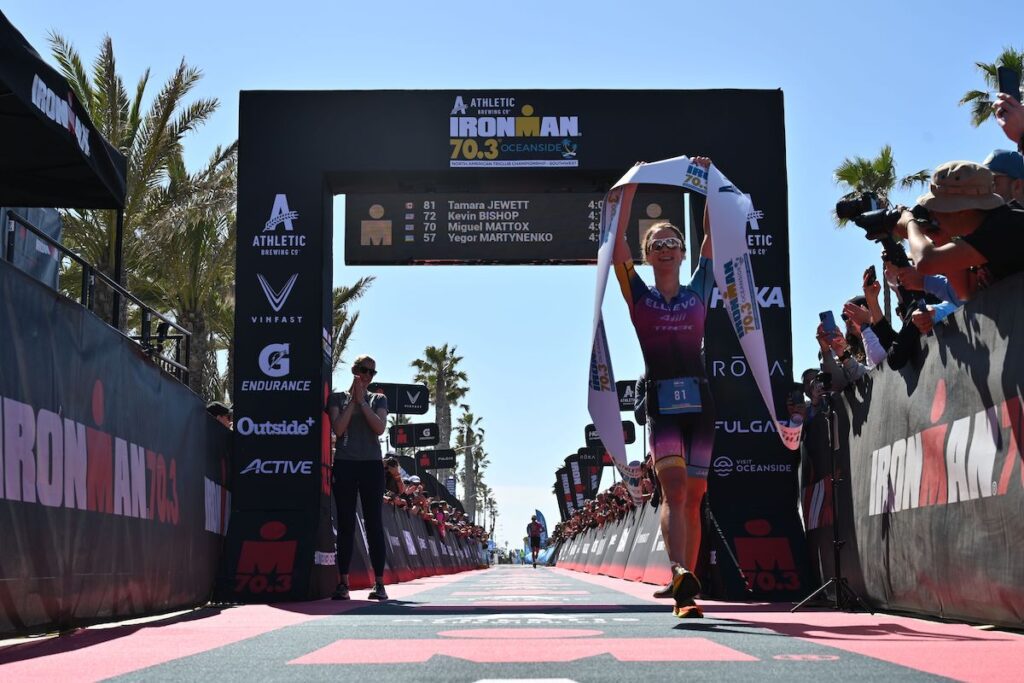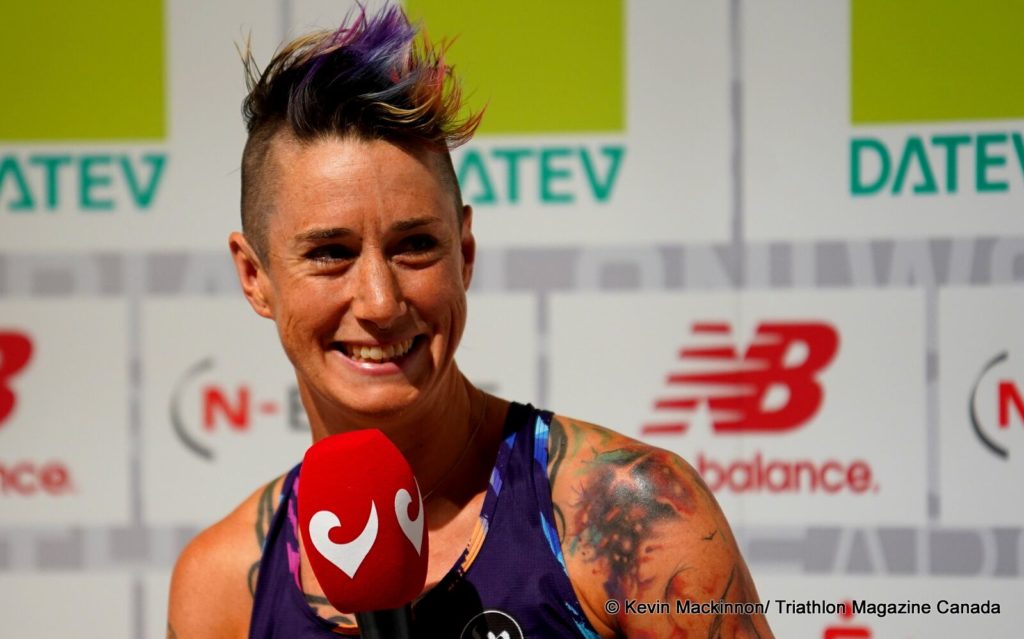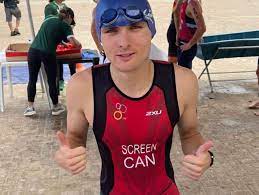Life as a pro triathlete – it’s not as glamorous as you think!
How some of Canada’s pro triathletes make ends meet
 Photo by:
Kevin Mackinnon
Photo by:
Kevin Mackinnon
Let’s face it, if you are an age-group triathlete, chances are you have a stable income and a somewhat predictable lifestyle. You know where your next meal is coming from and if you happen to have a flat, that replacement tube is not going to come at the expense of supper.
This isn’t always the case for professional triathletes. Whether they are more established pros, or just starting, things can be very lean. When you add up prize money and sponsorship revenue, there’s often not enough income to pay for travel costs, equipment, rent and food.
To cover that shortfall, many Canadian pros need a full- or part-time job. We spoke with some Canadian pros about what they do, or have done, to make ends meet.
Tamara Jewett: White Collar/Red Hot
Quite possibly Canada’s hottest triathlete at the moment is Toronto’s Tamara Jewett (pictured above at the 2022 Ironman 70.3 World Championship). She kicked off a stellar season by winning the uber-competitive Ironman 70.3 Oceanside race ahead of Chelsea Sodaro, Kat Matthews and Paula Findlay. Last weekend she enjoyed another stellar day with a big win at Ironman 70.3 Michigan.

Although Jewett is now “all-in” as a professional triathlete, she’s had some interesting jobs getting to this point in her career. After completing her undergraduate degree, she worked at the Running Room and tried to make it as a professional runner.
Things went poorly as the increased training load led to many injuries. This prompted her to apply to law school at the University of Toronto. She got in and she worked as a research assistant while at school, too.
After graduating from law school, she began participating in triathlon and working as a lawyer. The job offered her just as much personal satisfaction as it did financial reward. She was able to establish a comfortable lifestyle as she became more serious about triathlon.
The balance she achieved in her new life allowed her to thrive and she quickly progressed as a triathlete. When she decided to become a full-time pro, she had enough savings to sustain her and she knew that when her triathlon career was over, she could go back to her day job.
Clearly, her performances in 2022 and 2023 indicate that it was the right decision.
Nathan Killam: Blue Collar/Red Helmet

Years before discovering triathlon, North Vancouver’s Nathan Killam was a hard-working, burger-chomping, overweight, heavy-duty mechanic. A lifestyle change prompted him to ditch the burgers and don spandex. Within a few years, Canada had another long-course triathlon star.
He counts his wins at the Great White North Triathlon as well as his third place finishes at Wildflower and Ironman Mont-Tremblant among his best performances.
Killam enjoys success on the racecourse and social media, but he’s never been “all-in” as a professional triathlete. Although he no longer has to smell diesel and gear oil, and lift heavy objects, his paycheque comes from a career that is still demanding in a different way.
Killam now works as a firefighter. The job not only gives him a schedule to base his training and racing around, but it also provides him and his young family a stable income and pays the bills for his multisport and cyclocross habit.
Rach McBride: White Coat/Purple Tiger

The term pro triathlete does a poor job of fully describing one of Canada’s top long-course triathletes. If there were any educational requirements to be a pro triathlete, McBride would be exceptionally over-qualified.
With two Master’s degrees in genetics, you’d think a white lab coat would be the uniform of choice, but Canada’s “Purple Tiger” made other choices in their extraordinary life.
Originally a short-course athlete, McBride found competing at the elite level while holding down a full-time job was unsustainable, so they left the sport, embarked on a second Master’s degree , and raced bicycles for a Vancouver cycling team.
Fast forward a few years and McBride returned to triathlon as a long-course specialist. Like many new pros, their early years were lean. McBride lived in a cargo van to keep their expenses down. Even when success came, winning several 70.3 events and shattering bike course records in the process, they chose to continue living an austere lifestyle.
Though McBride could live on winnings and sponsorship money, they also work part-time providing sexual health education. The work McBride says, “keeps my brain active in a different way. I feel like I’m contributing positively to my community and providing a much-needed service to people of all ages, genders, and abilities.”
Jack Screen: Golden Dreams/No hat

One of Canada’s up-and-comers on the short course circuit is Vernon’s Jack Screen. The 20-year-old is trying to make a name for himself and earn a paycheque in triathlon. He is currently living in Victoria, B.C., and training with provincial coach, Kelly Guest.
When he isn’t swimming, biking, or running, he is studying at the University of Victoria. He is in his second year of General Studies and has a long-term goal of becoming a high school teacher.
Of course, living in one of the more expensive cities in the country is no small feat. He worked at McDonald’s for awhile, but the scheduled shifts often conflicted with his training schedule, and his training took priority over their deep fryer. With all the missed shifts, the paltry paycheques didn’t cover many expenses, so he had to find a more flexible work option.
Jack now works as a Skip the Dishes driver. This job allows him to work around his training schedule. And, he doesn’t have to spend long hours on his feet inhaling grease fumes.
His current athletic goal is to excel in draft legal triathlon and to become part of Canada’s Olympic team. He is well on his way, as last year he won the 16 to 19 sprint distance world championship and he placed third at the PTO Edmonton Junior National Development Race.
Although being a professional triathlete in Canada doesn’t mean you have to take a vow of poverty, it is usually not a very lucrative career. By having the right job, aspiring pros can cover expenses to the point where they don’t have to worry about going hungry, or living in cargo van, unless they want to.
The work can also lead to a fulfilling post-triathlon career, and additionally, a more holistic perspective to life.
This story originally appeared in the July issue of Triathlon Magazine.
